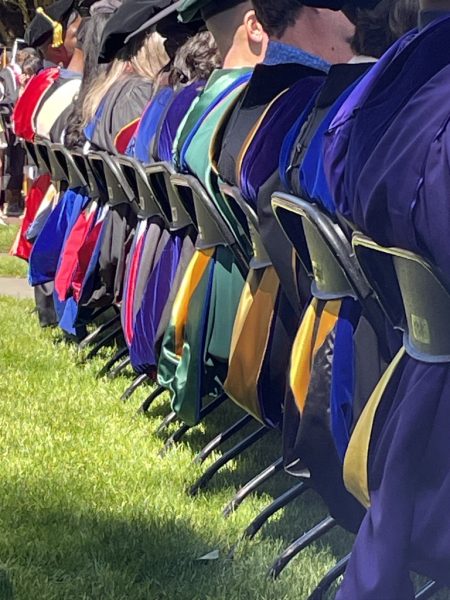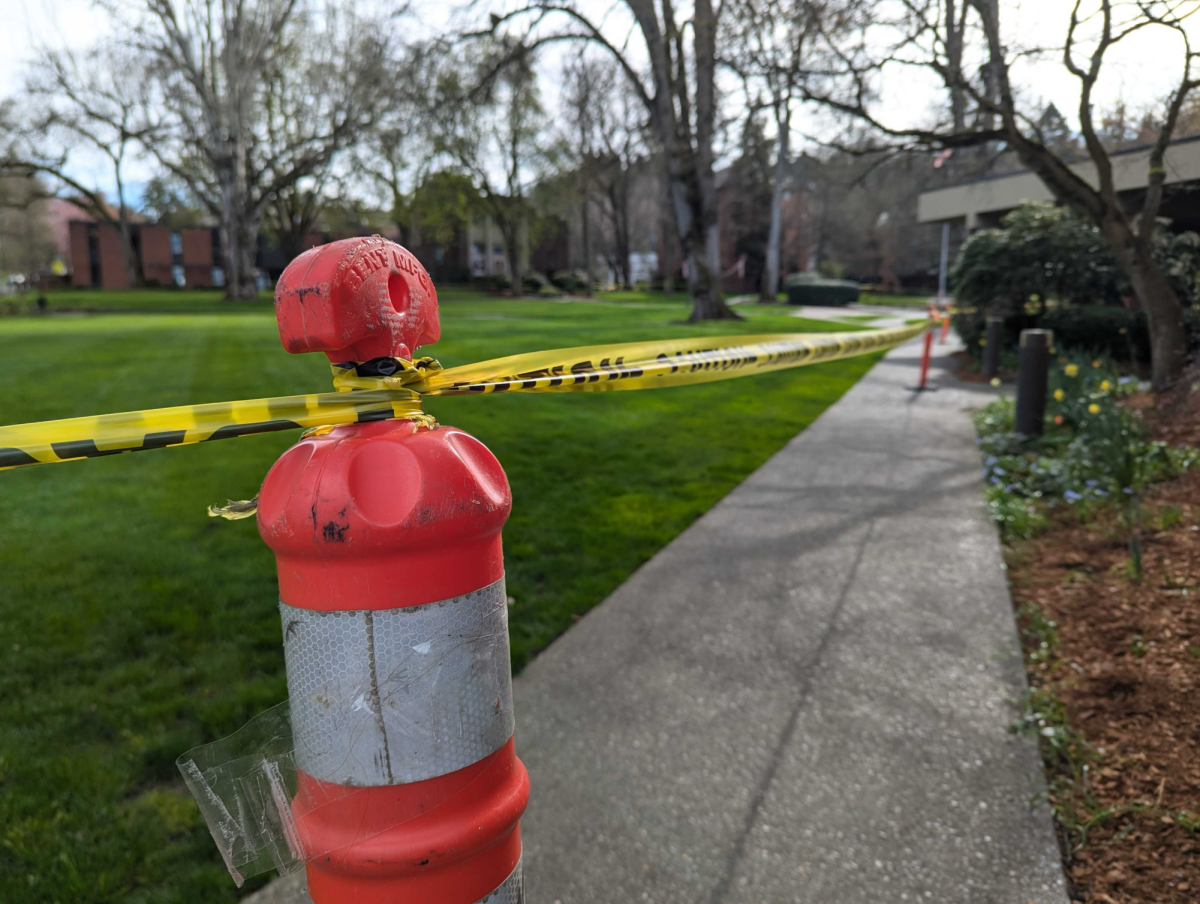
At least six faculty members were denied emeritus status, the honor generally given to those retiring from Seattle Pacific University. The SPU faculty handbook explains that faculty who wish to be awarded the status must serve for 10 or more years and demonstrate “meritorious service.” This number of denied applicants is unusual for the institution, with those who did not receive the status not given any reasoning for why their service was not deemed to be meritorious.
Faculty Chair Kevin Neuhouser was not involved in the decision making process, but is in charge of representing the faculty’s concern.
“I don’t know what percentage didn’t get it, it does seem high,” Neuhouser said. “I think what has been hurtful is that the people who were denied thought they had met the criteria and they got no feedback for what the reasoning was. It’s like if I give a student a failing grade and then they say ‘Why did I fail?’ and I said ‘I can’t tell you.’ That would be a little frustrating and not very helpful. I think that lack of clarity in the process has been a problem.”
The decision on who is awarded emeritus status is ultimately made by SPU’s Board of Trustees, but applications must first go through multiple layers before being decided upon by the board. Applications are first reviewed by the Faculty Status Committee who then gives their opinions on the candidates to the Vice President of Academic Affairs, Kathy Lustyk. Once her input is received, the applications are analyzed by President Deana Porterfield and finally sent to the board.
Kathy Lustyk, President Porterfield, and most of SPU’s Board of Trustees have only joined SPU within the past couple of years. With nearly every important person involved with the emeritus status process now run by newer employees, the definition of “meritorious service” seems to have changed.
“The handbook language from the criteria and the process are very vague,” Neuhouser said. “Historically, when SPU was very stable for long periods of time there had sort of grown up norms about what the criteria were and how the process would be handled. In the last last five years there’s been a lot of changes and the institutional memory and knowledge is not [there]. Almost all of the administration is relatively new.”
Dr. Peg Achterman, Dr. Amy Robertson, and Dr. William Purcell are among the professors denied emeritus status without explanation. Purcell attempted to request more information, but received no answers.
“I have heard from no one in the administration,” Purcell said. “I got no signals from my dean or my chair or anybody else along the way that this could be problematic. My dean, Rebekah Rice, has tried to obtain further information but to no avail.”
Upon learning of his denial, Purcell sent an email to his colleagues in which he stated concern that his denial may have been out of retaliation over his involvement in LGBTQ+ protests and the related lawsuits facing SPU. However, some faculty members not associated with the protests were also denied. Purcell’s email has provoked an outcry for transparency from SPU faculty who are confused about the university’s decision making.
“Some individuals have contacted me and talked about it,” Nuehouser said. “I can work with faculty governance to try to clarify understanding of criteria and qualification and try to create a better process and change handbooks so that in the future the decision making, would be more clear-cut and understanding by all parties.”
President Porterfield reiterated this same goal, further implying that mass institutional changeover is a major reason for the number of applicants who have been denied.
“That’s one of the things that faculty council is taking on is to see if they can, by the end of this year, make some clarity in the faculty handbook related to this decision,” Porterfield said. “They’re talking about ‘is the process clear with so much new leadership.’ We follow the process as we see it and if so, is that the right process?”
While changing the handbook may clear up questions as to portions of the decision making process, the Board of Trustees still holds the final decision.
“Handbook doesn’t cover the board,” Neuhouser said. “The board can make their decision and they don’t have to tell anybody unless they choose to do so. We can try to improve the process up until that point but up to when it gets to the board. They would have to be willing to be more transparent. The transparency would be to the individual.”
Ultimately, a lack of transparency from the board is what has ignited concern from faculty members. Upon attempting to reach out to the Board of Trustees for their definition of what constitutes meritorious service, an interview was denied due to information about board meetings and decision making being confidential.


















































































David Diekema • Apr 12, 2025 at 10:24 pm
What?! The SPU administration lacking transparency in their decision-making. Shocking!
Ruth L. Adams • Apr 11, 2025 at 5:53 am
Having served SPU for 33 years, working closely with faculty, staff and students there is one thing I can say with certainty–if you can’t explain why you made a decision face to face, you’re in for trouble. And when it involves recognition of service, you better be REALLY clear why. Take a stand, don’t take a stand, but own your decision openly, honestly and caringly. Having worked with all of these professors. I’m stunned. Good people doing great work should receive recognition.
AD • Apr 14, 2025 at 5:07 pm
As an SPU Grad, I am embarrassed for all students. These board members don’t give a shit about you. They’ll live on your tuition and watch you struggle.
GTFO SPU